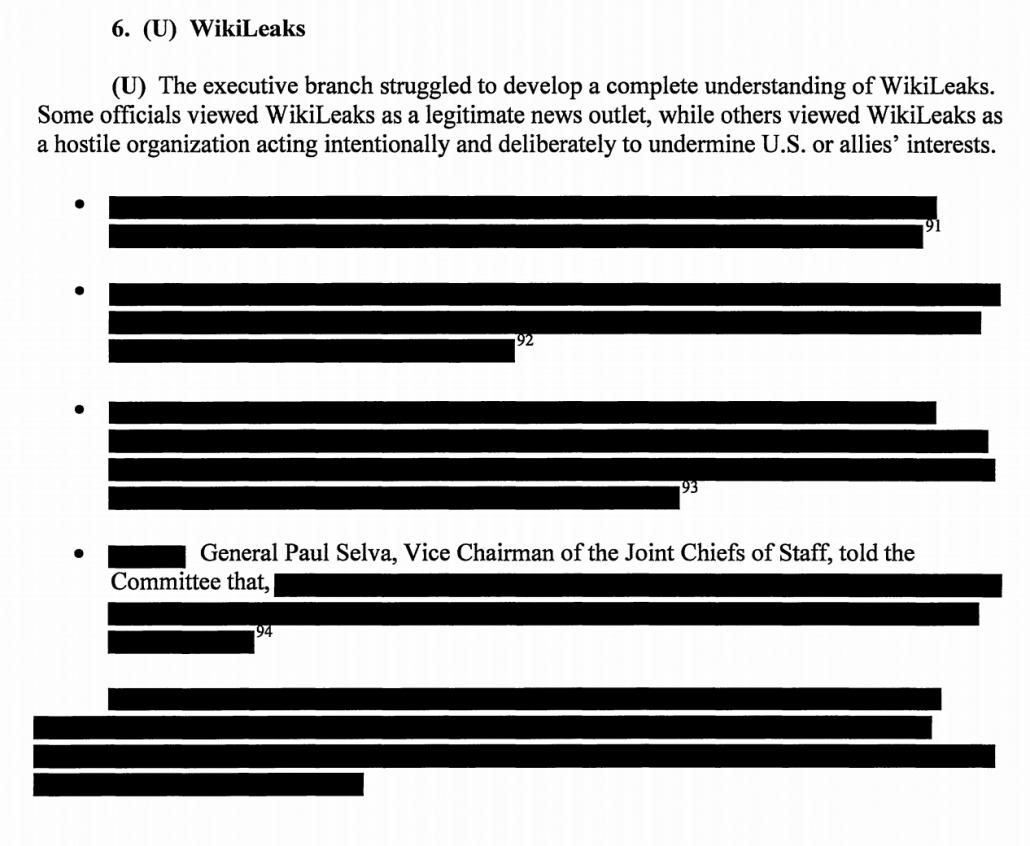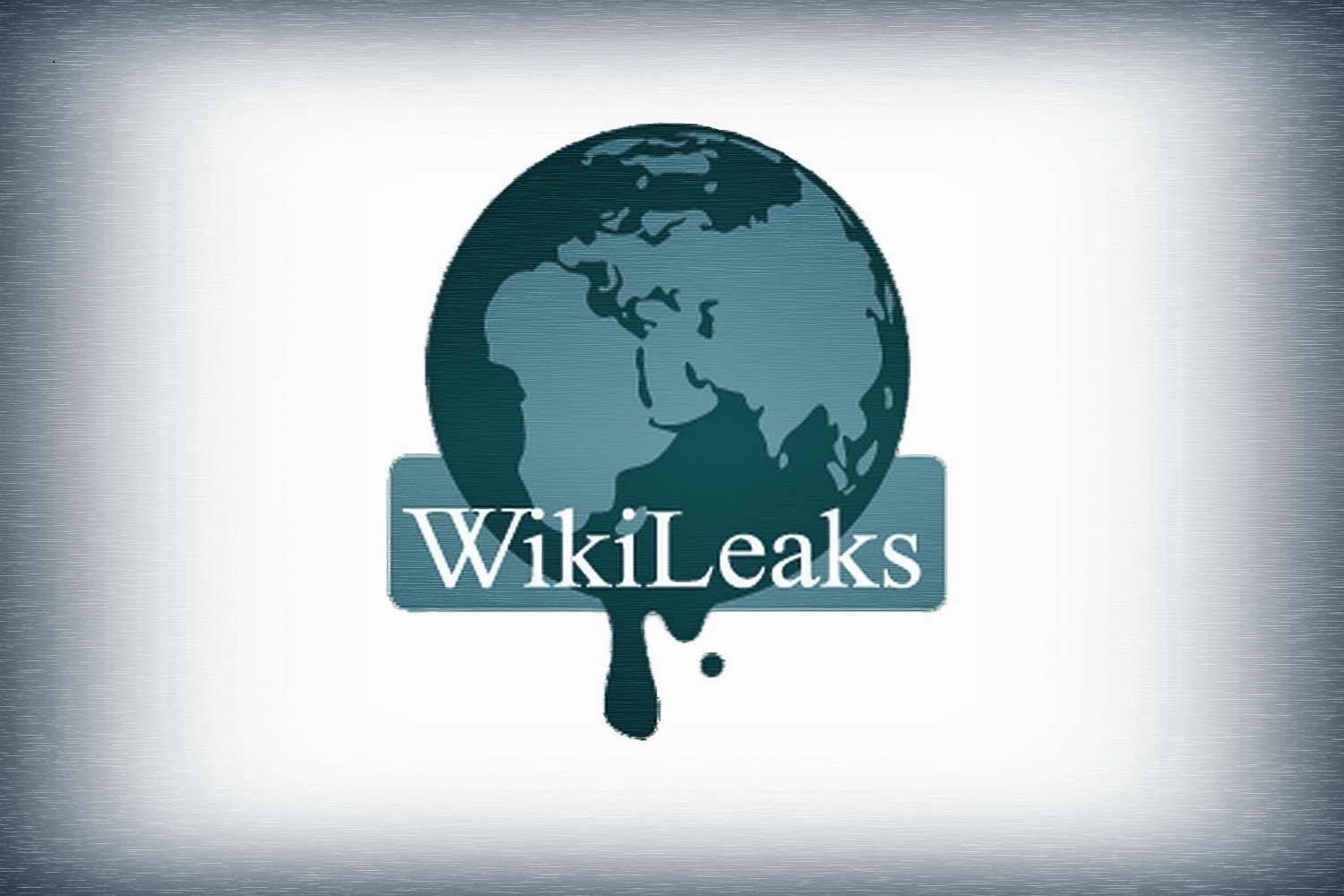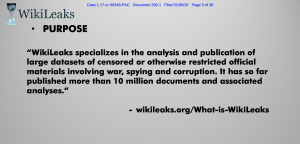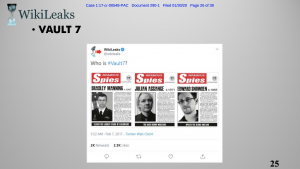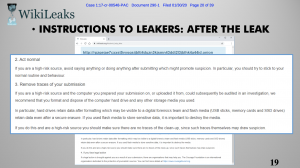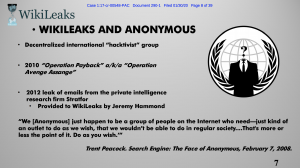Liar’s Poker: The Complexity of Julian Assange’s Extradition
There’s a remarkable passage in the High Court ruling granting the US appeal to extradite Julian Assange. It basically judged that the key medical expert who determined that Assange would be at risk of suicide if he were extradited, Michael Kopelman, had deliberately not told the truth in his first report on Assange about his family ties to Stella Morris and their two kids, and had not used available means to correct his falsehood afterwards.
We do not accept that Professor Kopelman was confronted with a dilemma of such difficulty as has been claimed. No reason has been put forward why, if it was felt that concern for Ms Moris’ safety made it necessary to conceal her identity, he could not simply have reported all relevant facts but indicated that he did not think it right to name her. That, indeed, is what Mr Assange’s solicitor seems to have expected him to do: her statement says that she canvassed with Professor Kopelman whether the identification of Ms Moris as Mr Assange’s partner could be deferred, and the report served, without detriment to or qualification of its conclusions or their basis. Thus she was not proposing that the report should contain anything misleading, only that for the time being Ms Moris should not be named.
Nor has any reason been given why an application could not have been made to the court pursuant to rule 19.9 of the Criminal Procedure Rules which enables material to be withheld in appropriate circumstances. But in any event, even making every allowance for his being placed in a difficult situation, we cannot agree with the judge’s view that Professor Kopelman did not fail in his professional duty. As the judge found, he made at least two statements which were misleading; and we see no escape from the inference that he did so deliberately, having decided to obscure certain facts in order to avoid mentioning the obviously-relevant facts of Ms Moris’ recent and continuing relationship and of the children whom she had by Mr Assange. At the conclusion of his first report, and in accordance with rule 19.4 of the Criminal Procedure Rules, he signed a declaration in the form required by paragraph 19B.1 of the Criminal Practice Direction. In this, he stated amongst other things –
“(vii) I have exercised reasonable skill and care in order to be accurate and complete in preparing this report.
(viii) I have endeavoured to include in my report those matters, of which I have knowledge or of which I have been made aware, that might adversely affect the validity of my opinion. I have clearly stated any qualifications to my opinion. …
(x) I will notify those instructing me immediately and confirm in writing if for any reason my existing report requires any correction or qualification.”
In our view, Professor Kopelman plainly did not comply with those statements, because in his first report he chose not to state what he knew of the relationship between Mr Assange and Ms Moris when opining on the effects of Mr Assange’s “solitary confinement” in the Embassy and the risk of suicide; and subsequently he failed to correct his report or to make clear his earlier knowledge of the relationship. We regret to say that declaration (viii) was simply untrue. His second report did nothing to correct the misleading impressions created by the first. On the contrary, it maintained his silence about his knowledge at the time of the first report.
With all respect to the judge, we cannot agree with her implicit finding that Professor Kopelman’s failings could be excused or overlooked merely because his conduct could be viewed as “an understandable human response”. Many people mislead courts for reasons which might be understandable but that does not excuse the behaviour and it is incompatible with the obligations of an expert witness to do so. Nor was it relevant to the judge’s assessment of his evidence that she had learned of Mr Assange’s relationship with Ms Moris before she read the medical evidence: it was no thanks to Professor Kopelman that she had done so.
There were, therefore, substantial reasons for the judge to question the impartiality and reliability of Professor Kopelman’s opinion. With respect to the judge, we would have expected to see a rather fuller analysis than she gave of her reasons for deciding that she could accept his evidence not least because it was central to the success of Mr Assange on the single ground which led to his discharge.
The question for this court, however, is whether she was entitled to accept his evidence. Mr Lewis confirmed that the USA did not submit to the judge that the professor’s evidence was inadmissible and should be excluded but rather that it should be given little weight, particularly where it was not supported by other expert evidence or contemporary medical records. In the end the argument before the judge devolved to one of weight. It is highly unusual for the court to be considering an expert witness whom a judge has found to have given misleading evidence but whose evidence has nonetheless been accepted. [my emphasis]
Because the US did not argue that his testimony was, as a result, inadmissible, but instead argued his testimony should be given little weight, the High Court ruled they were unable to second guess Vanessa Baraitser’s ruling, which relied heavily on Kopelman’s opinion. For that reason, the High Court rejected US’ two bases for appeal tied to Kopelman’s opinion.
Nevertheless, the High Court accepted that US assurances that Assange would not be subjected to solitary confinement unless he does something new to merit it were sufficient to grant the extradition request.
Ground 2: Having decided that the threshold for discharge under section 91 was met, the judge ought to have notified the USA of her provisional view to afford it the opportunity of offering assurances to the court;
[snip]
Ground 5: The USA has now provided the United Kingdom with a package of assurances which are responsive to the judge’s specific findings in this case. In particular, the US has provided assurances that Mr Assange will not be subject to SAMs or imprisoned at ADX (unless he were to do something subsequent to the offering of these assurances that meets the tests for the imposition of SAMs or designation to ADX). The USA has also provided an assurance that they will consent to Mr Assange being transferred to Australia to serve any custodial sentence imposed on him if he is convicted.
[snip]
The first and fourth assurances wholly exclude the possibility of Mr Assange being made subject to SAMs, or detained at the ADX, either pretrial or after conviction, unless, after entry of the assurances, he commits any future act which renders him liable to such conditions of detention. It is difficult to see why extradition should be refused on the basis that Mr Assange might in future act in a way which exposes him to conditions he is anxious to avoid.
The ultimate effect is that, unless Assange succeeds in his own appeal of this or the underlying decision, then Priti Patel will soon face the decision of whether or not to extradite him.
These two issues go to the dubious credibility of both sides. The High Court ruled that Kopelman did not give unvarnished expert opinion (he was in no way the only one of WikiLeaks’ experts to do so), but found that could not, at this point, affect the legal analysis. And it found that US assurances that US jails would treat Assange humanely were sufficient, even though I believe there is a high likelihood that Assange will do something that ends up getting him put in some form of isolation.
WikiLeaks has lied systematically throughout this extradition process — about why Assange was charged when he was, about what he was charged with, about how strong the case against him is, about what a Yahoo article actually said. I have described how a very close Assange associate ordered me, in advance of the first extradition hearing, to stop doing factual reporting on Joshua Schulte’s case because it would undermine the story about journalism WikiLeaks wanted to tell, which is one way I’m absolutely certain the lying is intentional. They have affirmatively told a story that was most useful to their propaganda effort, one they knew to be false.
It’s bad enough that WikiLeaks has chosen to lie over and over in Assange’s defense.
But out of a combination of sloppiness and willful ethical failures, press organizations and journalists have replicated those lies, claiming to do so in the name of “journalism.” In effect, press NGOs and journalists have spent the last two years stating that the lying and hacking that WikiLeaks does is what they do — a claim that I fear will backfire in the future. You can’t defend journalism by lying, but that is what Assange has induced journalists and their advocates to do, the world over.
That said, the US is little more credible. There’s scant reason to credit US assurances on jail and prison conditions. That’s true — and would be true for all international extradition cases — because our jails and prisons are shamefully inhumane. But it’s also true because a national security defendant like Assange would have little leeway before triggering more severe restrictions.
This is an example where neither side should be credited.
But that doesn’t change the danger. The way in which DOJ has applied the Espionage Act poses a grave threat to journalism.
17 of the 18 charges against Assange criminalize things that journalists also do: soliciting and publishing classified information.
The 18th charge is a hacking conspiracy, one that extends from efforts to hack multiple targets in 2010, including a WikiLeaks dissident, through the Stratfor hack, includes WikiLeaks’ efforts to exploit their role in helping Edward Snowden flee to Russia, right up to WikiLeaks’ efforts to recruit CIA SysAdmins like Joshua Schulte to hack the CIA, though the indictment stops short of WikiLeaks’ publication of those hacked files. There is nothing controversial about the CFAA charge — and, indeed, people who support privacy should be outraged about some of this (and this is not the only surveillance of private citizens I’ve heard about). A lot of people have been duped to cheerlead really invasive hacking and spying, if done by WikiLeaks, in the name of journalism.
The hacking charge parallels the Espionage charges, which is central to underlying extradition ruling. Judge Baraitser used the way these efforts worked in parallel to distinguish Assange from journalists.
[Baraitser] distinguished what Assange does from what journalists do because, as alleged in the indictment and in actual fact, hacking is such a central part of what Assange does. It’s not clear she would have gotten to this ruling without the language included in the superseding indictment (a superseding indictment which, again, virtually all Assange boosters either willfully ignore or are genuinely ignorant exists). But as it happened, she relied heavily on the language in the superseding indictment and very clearly distinguished what Assange does from what journalists do.
Of particular interest (because this is the language in the indictment that I believe sets up adding Vault 7 to the indictment), Baraitser accepted the US government’s description of Assange recruiting people to hack.
Mr. Assange, it is alleged, had been engaged in recruiting others to obtain information for him for some time. For example, in August 2009 he spoke to an audience of hackers at a “Hacking at Random” conference and told them that unless they were a serving member of the US military they would have no legal liability for stealing classified information and giving it to Wikileaks. At the same conference he told the audience that there was a small vulnerability within the US Congress document distribution system stating, “this is what any one of you would find if you were actually looking”. In October 2009 also to an audience of hackers at the “Hack in the Box Security Conference” he told the audience, “I was a famous teenage hacker in Australia, and I’ve been reading generals’ emails since I was 17” and referred to the Wikileaks list of “flags” that it wanted captured. After Ms. Manning made her disclosures to him he continued to encourage people to take information. For example, in December 2013 he attended a Chaos computer club conference and told the audience to join the CIA in order to steal information stating “I’m not saying don’t join the CIA; no, go and join the CIA. Go in there, go into the ballpark and get the ball and bring it out”.
Again, it’s not just that Assange solicited people to share classified information with him (which journalists do), but that he also explicitly encourages people to hack to get it.
She further used European privacy protections to distinguish Assange’s bulk publication of the identities of US and Coalition (therefore, also UK) informants from journalism.
She distinguished Assange’s publication online (in bulk, though that distinction is less clear and not one of great comfort to someone who also publishes online) from traditional journalism.
More importantly, Baraitser talked about the balancing involved in Article 10 (particularly with regards to the right of private life).
The defence submits that, by disclosing Ms. Manning’s materials, Mr. Assange was acting within the parameters of responsible journalism. The difficulty with this argument is that it vests in Mr. Assange the right to make the decision to sacrifice the safety of these few individuals, knowing nothing of their circumstances or the dangers they faced, in the name of free speech. In the modern digital age, vast amounts of information can be indiscriminately disclosed to a global audience, almost instantly, by anyone with access to a computer and an internet connection. Unlike the traditional press, those who choose to use the internet to disclose sensitive information in this way are not bound by a professional code or ethical journalistic duty or practice. Those who post information on the internet have no obligation to act responsibly or to exercise judgment in their decisions. In the modern era, where “dumps” of vast amounts of data onto the internet can be carried out by almost anyone, it is difficult to see how a concept of “responsible journalism” can sensibly be applied.
[comparison with other outlets and their condemnation of him]
The law already constrains in various ways what may be published in order to avoid damage to private interests. For example, the High Court recently awarded damages against the Associated Newspaper Ltd, after the MailOnline website published an article , reporting on the arrest of the claimant in the aftermath of the Manchester Arena bombing, and disclosing details capable of leading to his identification (Alaedeen Sicri v Associated Newspapers Limited, [2020] EWHC 3541 (QB)). Free speech does not comprise a ‘trump card’ even where matters of serious public concern are disclosed (see Stoll above), and it does not provide an unfettered right for some, like Mr. Assange, to decide the fate of others, on the basis of their partially informed assessment of the risks.
This was not necessarily a national security stance. Rather, in language that would apply equally to Assange’s indiscriminate publication of the DNC and Podesta emails (as well as the publication of the Turkish and Saudi emails), Baraitser argued that Assange’s publication in bulk was not protected because it did not and could not properly weigh the risk to others.
That’s scant comfort for the way Assange’s prosecution could be used against actual journalists, though, for several reasons. First, the Espionage Act charges still criminalize actions that journalists do, including the publication of classified information. Plus, the US First Amendment protects publication, not journalists, and so the distinction Baraitser made works less well in the US. And the US has none of the privacy protections that Baraitser used to distinguish his indiscriminate publication of informant identities (though it should).
In other words, unless the charges — or the way they’re presented — change between now and trial, ultimately the application of them to Assange would be a dangerous precedent given US law.
They may well change. The US government may have plans to make an argument that — even key press defenders have said — would make the Espionage Act charges more palatable: by, in effect, declaring Assange a spy. That’s one of the reasons I find the sealed ex parte filing submitted in the Joshua Schulte case on August 4 of such interest, because it seems so reactive to what is going on in the Assange extradition.
To understand why I think this is a possibility, it’s important to understand key details about the timeline leading up to Assange’s charges, details that WikiLeaks has worked very hard to obscure:
- As CNN reported in a 2017 piece that Julian Assange’s expert professed to be unable to find with Google, “The US view of WikiLeaks and Assange began to change after investigators found what they believe was proof that WikiLeaks played an active role in helping Edward Snowden, a former NSA analyst, disclose a massive cache of classified documents.” Snowden’s own book gave significant reason to believe this went well beyond simply fleeing to Russia. In any case, once Assange helped Snowden flee, WikiLeaks had eliminated the “NYTimes problem” DOJ faced if they prosecuted Assange for things real news outlets also do, because whatever else journalists do to protect their own sources, they don’t help the intelligence officers of one country flee to a hostile country.
- Just before Obama left office, the review of WikiLeaks’ role in the Russian election operation changed the view of the Obama Administration. It’s impossible to know whether that would have led Obama to charge Assange if he had more time. But there’s reason to believe that developments people like to blame on Trump — like increased surveillance of Assange — were set in motion before Trump came in.
- The 2017 release of hacked CIA tools — the publication that led Mike Pompeo to call WikiLeaks a hostile non-state intelligence agency and to consider and in some cases implement more onerous steps against Assange — not only involved the same actions currently charged for the Manning leaks (including the apparently selective publication of CIA officer identities), but it also involved efforts to extort the US government and even the President’s son. Additionally, the concern about WikiLeaks’ treatment of the CIA leak was not just or even primarily about the files that got released, but the files that WikiLeaks was hoarding; that’s what the government was really trying to understand when they conducted some of the more aggressive spying on WikiLeaks associates: what WikiLeaks was doing with the CIA’s source code, the vast majority of which is still unaccounted for.
- In addition to the Vault 7 release, after Roger Stone almost got Trump to shut down the entire Russian investigation in June 2017, later in 2017 DOJ started investigating Assange’s role in the 2016 operation, an investigation that at least by 2018 encompassed the question of whether he was an Agent of Russia. Particularly about these topics, Assange repeatedly foregrounded Russian-favored storylines during his extradition, rather than the truth.
- The surveillance that ratcheted up starting in summer 2017 and especially in December 2017 reportedly bore fruit. That month, according to even WikiLeaks-friendly sources speaking to Yahoo, Russia tried to exfiltrate Assange. This is a core detail of the Yahoo story that WikiLeaks has otherwise embraced, one that likely affects everything that came later. Julian Assange was not charged in 2016 after he helped Russia tamper in the US election. He was not charged in April 2017 after the Vault 7 release. He was charged the day the Russians tried to exfiltrate him. The Espionage Act charges that pose such a threat to journalism only came in May 2019, at least 8 months after DOJ started investigating whether Assange was a Russian Agent based on his 2016 conduct and two years after they significantly ramped up surveillance of him. The second superseding indictment that Assange boosters like to ignore includes conduct that extends through 2015 and incorporates multiple hacking conspiracies (in a single count) and his actions with regards to Edward Snowden. None of that changes the danger the Espionage Act charges pose to journalism. But it means they post-date the time when Russia came to fetch Assange.
In 2020, as part of a presumptively cynical attempt to coerce Jeremy Hammond to testify against Assange in a grand jury, prosecutors on this case asserted, as fact, that Assange is a Russian spy.
I don’t know whether that’s true or not — or whether the government would ever share its evidence to make the case, much less prove that he was a Russian spy during all the current charged acts going back to 2010. I know of plenty of circumstantial evidence going back even before 2009 that makes it plausible (here’s a compendium of some, but not all, of that evidence I know of). If that were proven, it would suggest Assange is — and may have been since he convinced Chelsea Manning to keep stealing documents, some of which she didn’t personally work with — a spy, using a classic technique of recruiting people using one motive to serve a very different one. It’d be a brilliant way to convince a lot of people to ruin their lives if that were true.
I’m not going to persuade the boosters nor, probably, is anything the US government would be willing to say in unclassified form. But I invite Assange boosters to consider whether they would continue their own activism for him if they were convinced of that fact. (There’s absolutely a case to be made for doing so, particularly for non-Americans.) More importantly, I invite journalists and journalism NGOs, particularly the ones who have been telling partial truths, lies of omissions, or magnifying brazen falsehoods, to consider what that would mean for their profession, if after spending two years proclaiming that what Assange does is what journalists do it were revealed that Assange was not what the deliberate lies WikiLeaks is telling proclaim him to be.
I’d like to protect journalism. That requires opposing the Espionage Act charges against Assange for obtaining classified information and publishing it. But it also requires telling the truth about Julian Assange.
What today’s High Court judgment confirms is that neither side can be trusted.


